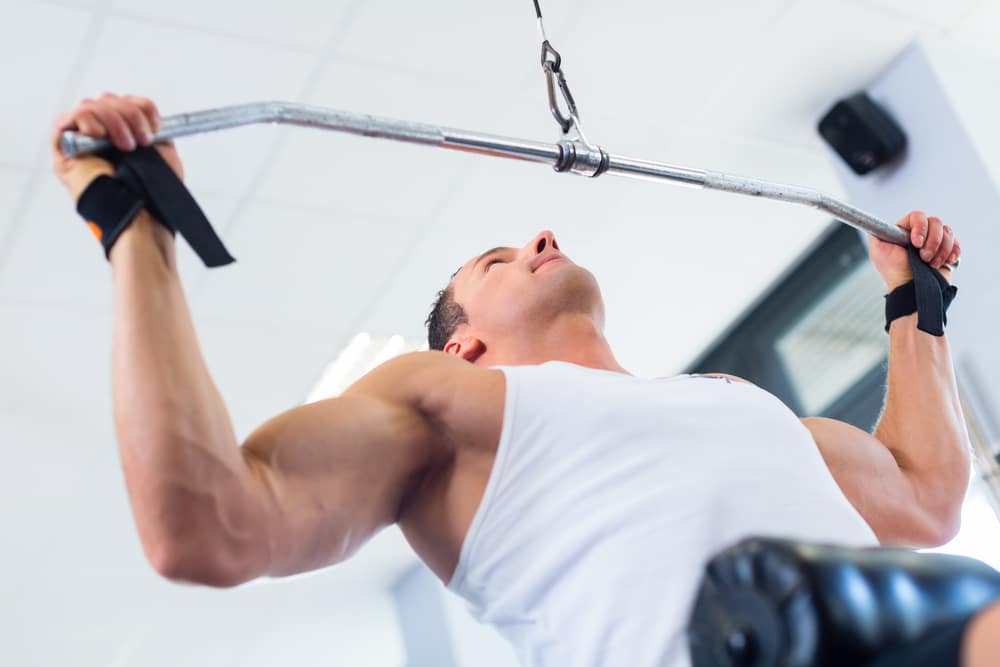Introduction
How Much Sleep Do Bodybuilders Need: Sleep is a fundamental aspect of human well-being, essential for physical and mental recovery. For bodybuilders, who push their bodies to the limits with intense workouts and rigorous training regimens, the importance of quality sleep cannot be overstated. The question of how much sleep bodybuilders need is a topic of great significance within the fitness community.
Bodybuilding is a demanding pursuit that places significant stress on the muscles, joints, and the central nervous system. While exercise is crucial for muscle growth, it is during sleep that the body undergoes critical repair and growth processes. Adequate sleep is essential for optimizing muscle recovery, hormonal balance, and overall performance. Insufficient sleep can lead to a host of negative consequences, including reduced muscle gains, impaired cognitive function, and increased risk of injury.
In this exploration, we will delve into the science behind sleep and its impact on bodybuilding, providing insights into the optimal sleep duration, sleep quality, and strategies to ensure that bodybuilders achieve their peak performance potential. Understanding the symbiotic relationship between sleep and bodybuilding is essential for those dedicated to sculpting their bodies and maximizing their strength and endurance.

How important is sleep for bodybuilders?
Sleep is of paramount importance for bodybuilders. It’s during sleep that the body repairs and builds muscle tissue, releases growth hormone, and restores overall physical and mental health.Sleep plays a crucial role in muscle recovery and growth. During deep sleep stages, the body releases growth hormone, which aids in tissue repair and regeneration. This is especially significant for bodybuilders who subject their muscles to intense workouts.
Muscle Recovery and Growth:
- Sleep is a primary period for muscle recovery and growth. It’s during sleep that the body repairs and rebuilds muscle tissues that have undergone stress during intense workouts.
- Muscle protein synthesis (MPS), the process of creating new muscle proteins, occurs predominantly during sleep, contributing to muscle repair and growth.
- Adequate sleep ensures that the body has sufficient time to repair and strengthen muscle fibers, leading to increased muscle mass and improved strength.
Growth Hormone Release:
- Deep sleep stages, especially during the first half of the night, are associated with a significant release of growth hormone (GH).
- GH is a potent anabolic hormone that promotes muscle growth and repair. It stimulates the synthesis of new muscle proteins, enhancing the recovery process.
- Bodybuilders rely on GH to help maximize the results of their training efforts.
Hormonal Balance:
- Sleep is crucial for maintaining a balanced hormonal profile, which is essential for muscle development.
- Insufficient sleep can lead to disruptions in hormone levels, including increased cortisol (a catabolic hormone) and decreased testosterone (an anabolic hormone).
- A healthy hormonal balance, supported by adequate sleep, is vital for optimal muscle growth and overall well being.
How many hours of sleep do bodybuilders typically aim for?
Bodybuilders typically aim for 7 to 9 hours of quality sleep per night.The ideal sleep duration can vary slightly from person to person, but 7 to 9 hours is a general guideline. This duration allows for sufficient rest and recovery, ensuring that the body can repair and grow muscle tissue effectively.
Here’s why this range is important:
Muscle Recovery and Growth:
- The recommended 7 to 9 hours of sleep per night provides the body with adequate time to recover from intense workouts and repair muscle tissues.
- During deep sleep stages, such as rapid eye movement (REM) sleep, the body releases growth hormone, which is essential for muscle repair and growth.
- This sleep duration allows for sufficient muscle protein synthesis (MPS) to take place, leading to improved muscle mass and strength.
Hormonal Balance:
- Aiming for 7 to 9 hours of sleep helps maintain a balanced hormonal profile, with healthy levels of testosterone and growth hormone, while keeping stress hormones like cortisol in check.
- Hormonal balance is crucial for muscle development and overall health.
Recovery from Intense Workouts:
- Bodybuilders engage in demanding training routines that place considerable stress on their muscles and central nervous system.
- The recommended sleep duration supports the body’s recovery from these strenuous workouts, reducing the risk of overtraining and injuries.
Can insufficient sleep hinder muscle growth?
Yes, insufficient sleep can hinder muscle growth. Sleep deprivation can lead to decreased muscle protein synthesis, increased muscle breakdown, and hormonal imbalances that negatively impact muscle recovery.When the body doesn’t receive enough sleep, it can enter a catabolic state, where muscle breakdown exceeds muscle growth. This can be detrimental to bodybuilders who are striving to build and maintain muscle mass.
Here’s a closer look at how inadequate sleep can negatively impact muscle growth:
Decreased Muscle Protein Synthesis: Muscle protein synthesis (MPS) is the process by which the body builds new muscle proteins. It’s a critical aspect of muscle growth and recovery. When you don’t get enough sleep, MPS is impaired. Sleep is when the body is most efficient at repairing and building muscle tissue, so insufficient sleep limits this crucial process.
Increased Muscle Breakdown: Sleep deprivation can lead to an increase in the breakdown of muscle tissue. This occurs because insufficient sleep can elevate levels of the stress hormone cortisol, which has catabolic effects on muscle tissue. Elevated cortisol levels can accelerate muscle protein breakdown, undermining muscle growth efforts.
Hormonal Imbalances: Sleep plays a pivotal role in regulating hormones, including those that are important for muscle growth, such as testosterone and growth hormone (GH). Inadequate sleep can disrupt the delicate hormonal balance, leading to lower testosterone levels and reduced GH secretion. Both of these hormones are crucial for muscle repair and growth.
Energy and Performance: Lack of sleep can leave you feeling fatigued and drained, impacting your physical performance during workouts. This reduced energy and stamina can lead to suboptimal training sessions, making it difficult to stimulate muscle growth effectively.
What role does deep sleep play in muscle recovery for bodybuilders?
Deep sleep is crucial for bodybuilders as it is during this stage that the body releases growth hormone, which promotes muscle repair, growth, and overall recovery.Deep sleep stages, particularly the rapid eye movement (REM) stage, are essential for muscle recovery. Growth hormone release is at its peak during these stages, facilitating the repair of damaged muscle fibers and the synthesis of new ones.
Here’s a detailed look at why deep sleep is crucial for bodybuilders:
Growth Hormone Release:
- Deep sleep, particularly during the early part of the sleep cycle, is associated with a significant release of growth hormone (GH).
- GH is a potent anabolic hormone that plays a central role in muscle repair and growth. It stimulates the synthesis of new muscle proteins, aiding in the recovery process.
- GH also helps with the breakdown of fats, which can be valuable for maintaining a lean physique.
Muscle Repair and Growth:
- During deep sleep, the body prioritizes the repair and regeneration of tissues, including muscle fibers.
- Microscopic muscle damage that occurs during strenuous workouts is repaired during this phase. This repair process is essential for muscle growth, increased strength, and enhanced performance.
- Adequate deep sleep provides the necessary time for the body to rebuild and strengthen muscle tissue.
Protein Synthesis:
- Muscle protein synthesis (MPS) is a critical process for building and maintaining muscle mass.
- Deep sleep optimizes MPS by creating an ideal environment for the incorporation of dietary proteins into muscle fibers.
- This process leads to the formation of new muscle proteins, contributing to muscle recovery and growth.
Hormonal Balance:
- Deep sleep contributes to the regulation of hormones, including those associated with muscle recovery.
- It helps maintain a favorable hormonal balance, preventing disruptions that can hinder muscle growth.
- Adequate sleep supports the production of testosterone, another hormone essential for muscle development.
How can bodybuilders improve the quality of their sleep?
Bodybuilders can improve the quality of their sleep by maintaining a consistent sleep schedule, creating a comfortable sleep environment, avoiding stimulants close to bedtime, and practicing relaxation techniques.Consistency in sleep patterns helps regulate the body’s internal clock, making it easier to fall asleep and wake up at the same times each day. A comfortable sleep environment includes a dark, quiet, and cool room. Avoiding stimulants like caffeine and electronics before bedtime can also promote better sleep.
Maintain a Consistent Sleep Schedule:
- Bodybuilders should aim to go to bed and wake up at the same time each day, even on weekends.
- Consistency helps regulate the body’s internal clock, making it easier to fall asleep and wake up refreshed.
Create a Comfortable Sleep Environment:
- Ensure that the sleep environment is conducive to rest. This includes:
- Keeping the bedroom dark by using blackout curtains or an eye mask.
- Reducing noise with earplugs or white noise machines.
- Maintaining a cool room temperature, as a cooler room is generally more conducive to sleep.
Limit Exposure to Screens and Electronics:
- The blue light emitted by screens (phones, tablets, computers, TVs) can interfere with the body’s production of melatonin, a hormone that regulates sleep.
- It’s advisable to avoid screens at least an hour before bedtime. If necessary, use blue light filters on electronic devices.
Can napping be beneficial for bodybuilders?
Yes, napping can be beneficial for bodybuilders. Short power naps (20-30 minutes) can help reduce fatigue and improve alertness, which can be particularly useful on intense training days.Naps should be kept short to prevent grogginess and disruption of nighttime sleep. A well-timed nap can provide a quick energy boost without interfering with the night’s rest.
Reduction of Fatigue:
- Bodybuilders often engage in intense and physically demanding workouts, which can lead to fatigue, both muscular and mental.
- A short nap, typically lasting 20-30 minutes, can help alleviate this fatigue and provide a quick energy boost.
Improved Alertness:
- Napping can enhance alertness and cognitive function, which is important for maintaining focus during workouts and making safe and effective exercise choices.
- Bodybuilders can benefit from improved concentration and mental clarity, especially when following complex training programs.
Enhanced Recovery Between Workouts:
- Napping between workouts on the same day can aid in muscle recovery. A brief nap can help reduce muscle soreness and fatigue, allowing for more effective subsequent training sessions.
How does sleep affect a bodybuilder’s mental and emotional well-being?
Sleep is essential for a bodybuilder’s mental and emotional well-being. It helps regulate mood, reduce stress, enhance focus, and improve decision-making. Quality sleep is associated with better mental and emotional resilience. It aids in managing the stress that often accompanies intense training and competition, allowing bodybuilders to maintain a positive mindset and stay motivated.
Mood Regulation:
Adequate sleep is crucial for mood regulation. Sleep deprivation can lead to irritability, mood swings, and heightened emotional reactivity.
Bodybuilders who prioritize quality sleep are better equipped to maintain a positive and stable mood, which is essential for staying motivated and focused on their training goals.
Stress Reduction:
- Intense training regimens, dietary restrictions, and competition pressures can contribute to high levels of stress in bodybuilders.
- Quality sleep helps manage and reduce stress by allowing the body to recover and reset. It promotes a sense of calm and emotional resilience, making it easier to cope with the stressors of the sport.
Cognitive Function and Focus:
- Sleep is essential for cognitive function and mental clarity. A well-rested mind is better equipped to concentrate, make decisions, and solve problems effectively.
- Bodybuilders require a high level of focus during workouts, meal planning, and competition preparation. Quality sleep enhances cognitive performance and helps maintain peak focus.
What should bodybuilders do if they have trouble sleeping?
If bodybuilders have trouble sleeping, they should consider lifestyle changes such as adjusting their sleep environment, managing stress, and avoiding heavy meals close to bedtime. If sleep problems persist, consulting a healthcare professional may be necessary. Addressing sleep issues promptly is crucial. Lifestyle modifications and relaxation techniques can often improve sleep quality. However, if sleep problems persist or worsen, a healthcare professional can help identify underlying issues and recommend appropriate interventions.
Create a Comfortable Sleep Environment:
- Keeping the bedroom dark using blackout curtains or an eye mask.
- Reducing noise with earplugs or white noise machines.
- Maintaining a cool room temperature, which is generally more conducive to sleep.
Establish a Consistent Sleep Schedule:
- Going to bed and waking up at the same time each day helps regulate the body’s internal clock, making it easier to fall asleep and wake up refreshed.
Limit Screen Time Before Bed:
- The blue light emitted by screens (phones, tablets, computers) can interfere with the production of melatonin, a hormone that regulates sleep.
- Avoid screens at least an hour before bedtime or use blue light filters if necessary.

Conclusion
The question of how much sleep bodybuilders need is not a one-size-fits-all answer but rather a critical consideration for those striving to achieve peak performance in the demanding world of bodybuilding. While individual sleep requirements may vary, a general guideline is that bodybuilders should aim for 7 to 9 hours of quality sleep per night. This duration allows for adequate muscle recovery, growth, and repair, as well as the regulation of crucial hormones like growth hormone and testosterone.
Sleep plays an indispensable role in a bodybuilder’s physical, mental, and emotional well-being. It supports muscle development, enhances cognitive function, reduces stress, and fosters emotional resilience. Bodybuilders must prioritize sleep as a fundamental component of their training and recovery regimen. By doing so, they can unlock their full potential, achieve their fitness goals, and maintain a healthy balance between the intense demands of the sport and their overall health and well-being. In the realm of bodybuilding, quality sleep is not just a luxury; it’s a performance-enhancing necessity.
In the competitive and physically demanding world of bodybuilding, sleep is the unsung hero that often goes unnoticed. Yet, it’s the vital element that separates champions from the rest. The recommended 7 to 9 hours of sleep per night is the cornerstone upon which muscle recovery, growth, and overall success are built.For bodybuilders, sleep is not merely downtime; it’s a time of transformation. It’s during those precious hours of rest that the body rebuilds muscle fibers, releases growth hormone, and balances critical hormones.


1 comment
… [Trackback]
[…] Read More Info here on that Topic: thefitnessblogger.com/how-much-sleep-do-bodybuilders-need/ […]